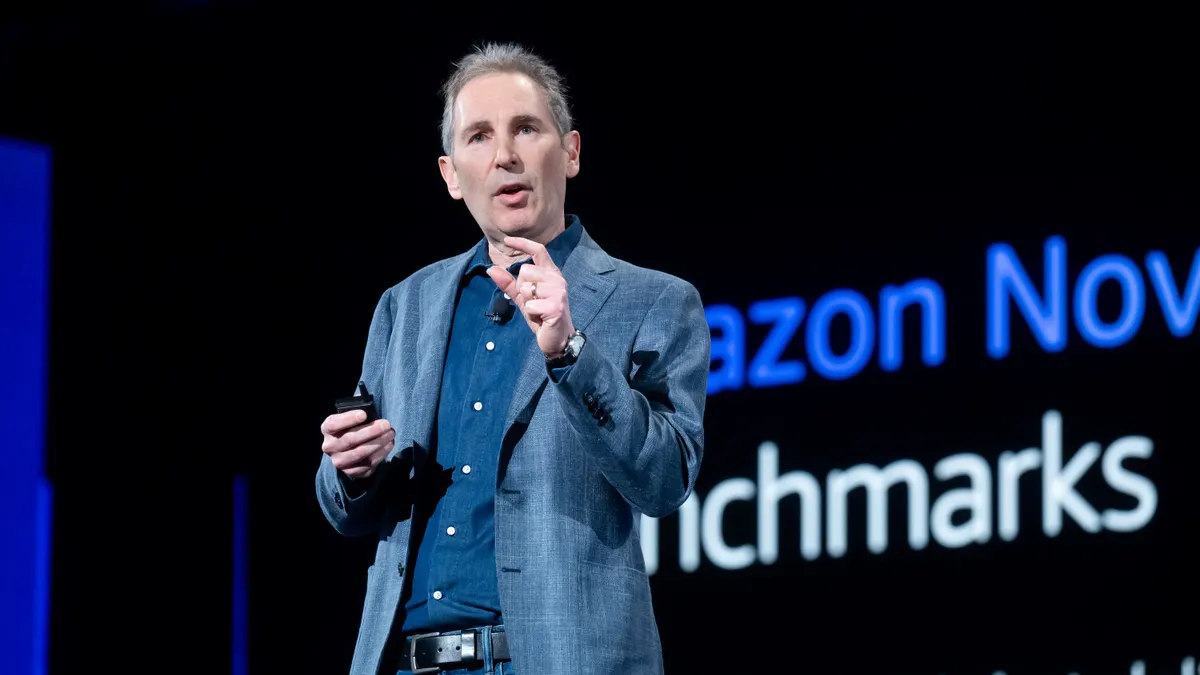Dive Brief:
- Amazon expects its generative AI investments to continue improving its customers’ experience — and eventually shrink its workforce, CEO Andy Jassy in a blog post Tuesday.
- Jassy highlighted several existing customer-facing applications of the technology, including Alexa+, an updated version of the Alexa personal assistant; Buy for Me, a tool that can purchase eligible products from third-party sites without customers leaving the Amazon Shopping app; and Rufus, its AI shopping assistant.
- The company will also deploy AI agents to help employees do their jobs. These “agents are going to change the scope and speed at which we can innovate for customers,” Jassy wrote. “We’ll be able to focus less on rote work and more on thinking strategically about how to improve customer experiences and invent new ones.”
Dive Insight:
Amazon has said what many other businesses deploying AI to improve CX haven’t: AI advancements will likely lead to job cuts.
“We will need fewer people doing some of the jobs that are being done today, and more people doing other types of jobs,” Jassy said. “It’s hard to know exactly where this nets out over time, but in the next few years, we expect that this will reduce our total corporate workforce as we get efficiency gains from using AI extensively across the company.”
But by building AI agents, the company will be able to make customers’ lives easier, “and it’s going to make our jobs even more exciting and fun than they are today,” Jassy said.
Amazon has rebuilt its customer service chatbot with generative AI, according to Jassy. The company first added the generative AI chatbot Q to its customer service operations in 2023 to recommend responses and actions for agents.
“What started as deep conviction that every customer experience would be reinvented using AI, and that altogether new experiences we’ve only dreamed of would become possible, is rapidly becoming reality,” Jassy said.
While Jassy didn’t provide an exact number or which areas of the business would be affected, one job threatened by AI across multiple industries is the customer service agent. However, experts have warned that making people available is essential to driving AI adoption, so while AI can improve self-service, it isn’t in a position to replace live agents.
Klarna is an early case study in using AI chatbots for customer service work. The company claimed AI could handle the work of 700 agents in early 2024, but by May of this year, announced that it wants customers to always have the option to speak to a human.
Still, Klarna saw its experiment as a success. Customer service costs per transaction dropped 40% over two years, and the AI rollout didn’t harm customer satisfaction, the company said in May.











